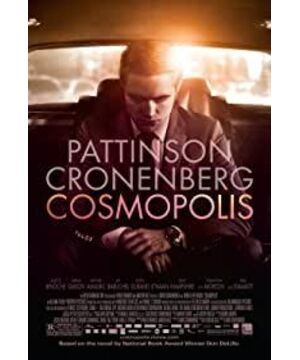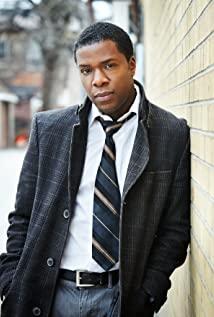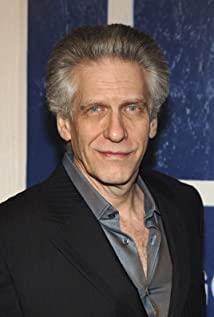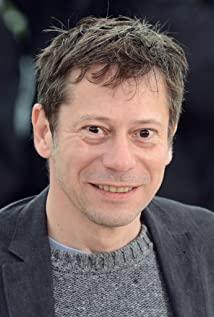The original book of the same name of "Metropolis" describes the story that happened in one day. The protagonist of the novel, Eric Parker, is a twenty-eight-year-old billionaire living in New York. It's his nature to keep grabbing new things in the world. One day in April 2000, he planned to drive through New York City to get a haircut. On the way, he kept meeting with relevant people to discuss the rise and fall of the yen; he encountered a demonstration against globalization - which later turned into a riot; his car passed through a funeral team; the security chief reports to him that a deranged ex-employee is waiting to kill him. Published in 2003, "Metropolis" is regarded as one of the best works in the United States in recent years. (Baidu Encyclopedia)
As a stylized work, especially Cronenberg's work, "Metropolis" is inevitable. Most famous for "The History of Violence", it seems that Cronenberg talks about "violence" in every work. The original Metropolis was all about violence — the kind of violence tied to the dot-com bubble. It's no surprise that Cronenberg adapted such a novel.
First, it's a chatty movie; second, the style of Cronenberg's cult movie is heavily used in "Metropolis": dirty streets, large urban night scenes, sudden violence. From a visual viewing point of view, the stylized images of this film are of great viewing value. For a film with a weak story, it feels like a "Conanbo format". The weird lines, the deadly expressions of the characters, Cronenberg is all about making you feel depressed and uncomfortable, and the apocalyptic atmosphere permeates the entire film.
To put it simply, the protagonist Eric is an unhappy young man. His unhappiness stemmed from loneliness, confusion, and anxiety from the outside world. In the shaping of this character, I think Cronenberg was successful. He portrayed the character of Eric very full, and the camera was almost inseparable from the male lead every second. Eric's expression is often stiff (loneliness); he has to have a physical examination every day (worry); he likes to have sex (suppressed), and he likes to talk about economic phenomena with others, but does he really care about his assets of hundreds of millions? I think the answer is no. Except for the scene where he knew he was going to be shot at the end of the film, Eric was only emotional and burst into tears after learning that his favorite hip-hop singer died in the middle of the film. The film interspersed with this scene is a bit confusing, but I personally think that it is to show that Eric does not really care about the unpredictable economic market. The strongest argument for this is the tens of minutes of Eric's confrontation with his unhinged ex-employee in the final scene of the film. The ex-employee has been accusing Eric of his actions and trying to find a "justification" for killing Eric. And Eric always said something and nothing, as if he was an animal who directly protected himself after being threatened by others. Taken together, Eric represents the ruthless and ruthless entrepreneurs on Wall Street. Sometimes complex problems are simply solved for one reason, and that is through the use of violence. Eric's real breakdown was after being maliciously smeared on his face by a gangster, and the direct performance after his breakdown was to use violence, kill the bodyguard with the bodyguard's gun, and then go to the haircut scene - a nonsensical classic scene , a large number of insignificant lines and actions are very "Quentin". This scene has repeatedly focused on Eric's deadly face, which has a chilling effect.
It seems that "violence" is a derogatory term, but it is really difficult for us to really judge whether the violent "actions" of entrepreneurs in society are right or wrong, and the complexity of the economy and society is unimaginable. Even in some places, the goals and functions of the economy are extended and generalized without limit, and the economic mind completely replaces the cultural mind, leading to the weakening and distortion of cultural construction. I don't know if Metropolis is primarily showing this, but I'm sure it's a fact it's trying to convey - a hopeless, money-heavy dystopian world. From this, I think "Metropolis" has its own artistic charm, and after reaching the connection with the real society, this artistic charm will be sublimated into artistic value.
As a work that Robert Pattinson wants to prove his acting skills, he feels 100% devoted, which is worthy of encouragement. Of course, it is inseparable from Cronenberg's hard work on him. Pattinson gives a sense of gloom when he reads his lines, and with that stern face, Cronenberg chose him to play Eric quite effectively. Juliette Binoche, who appeared very short, gave a great performance, and the scene with Pattinson's "missing a gun" had a very visual impact...
"Metropolis" has a key element, that is "Anarchism". The bursting of the "economic bubble" triggered anti-globalization demonstrations. Once the demonstrations lost their restraint, they would go out of control and turn into riots and riots. It can be clearly seen that Eric doesn't care about the riots outside, as if a billionaire who has taken drugs is enjoying the feeling of "noise" dragging him into the psychedelic abyss. The mouse, an animal that is not popular with the general public, is ironically compared to currency in circulation by the rioters in "Metropolis". The collapse of money worship is often the result of the "return of faith and return of civilization" advocated by such riots. To. Just imagine, if one day mice really become currency circulation, will this kind of animal that was originally hated by people become popular?
View more about Cosmopolis reviews











